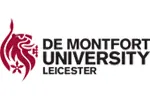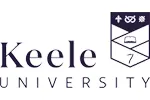Our Medical Science programme always places students’ interest and learning experience at the heart of the teaching and learning activity, as supported by a strong integration of Universal Design for Learning (UDL) principles and inclusive teaching. We have dedicated staff with diverse experience, outstanding level of pastoral care as well as scientific and clinical research informed teaching.
After successfully completing year one, Medical Science students will be equipped with fundamental knowledge of and practical skills in chemistry and biochemistry, anatomy and physiology, microbiology and personal and professional skills. In year two, students integrate their understanding of the healthy human body with disease pathology and processes before being introduced to the disciplines and techniques involved in delivering quality healthcare, and an insight into management principles relevant to many professional settings in year three.
In year three, students also design and implement an independent research project, either laboratory, literature-based or clinical-based, which is written up as a scientific article and presented as a public engagement poster. This demands excellent time management and organisational skills, the ability to plan and to execute scientific research, strong written communication skills, the ability to read and evaluate critically scientific articles, as well as excellent problem-solving, numeracy and analytical skills.
The practical component of this course equips graduates with experience and knowledge of a range of scientific equipment and procedures, including ELISAs, cell culture, histology, SDS-PAGE and western blotting, history taking, communication skills, measurement of vital signs, providing first aid, ECG and other monitoring methods for cardiovascular and health conditions.
Key features
- Benefit from Education 2030, where a simplified ‘block learning’ timetable means you will study one subject at a time and have more time to engage with your learning, receive faster feedback and enjoy a better study-life balance.
- The academic quality of the curriculum has been assured by Royal Society of Biology accreditation
- Dedicated staff with diverse experience, outstanding level of pastoral care as well as scientific and clinical research informed teaching
- A strong integration of Universal Design for Learning (UDL) principles and inclusive teaching
- The teaching and learning activities in Medical Science programme include traditional lecture, interactive seminar and workshop, laboratory and clinical skill practical sessions.
- Space for focused learning, excellent teaching contact time as well as exceptional academic support and pastoral care
- Be part of a lifelong learning journey/process, rather than the end point.
- Cultivation of learning and becoming an autonomous learner have been at the heart of the programme.
- Utilisation of national and international sources of information (i.e. text books, guidelines, case reports and peer-review articles) to reflect on arising global issues.
- Our students benefit from an international experience through our DMU Global programme, which has seen students conducting Biomedical Science workshops on topics including malaria, sickle cell disease, and diabetes to school students in Zimbabwe and Bermuda.



